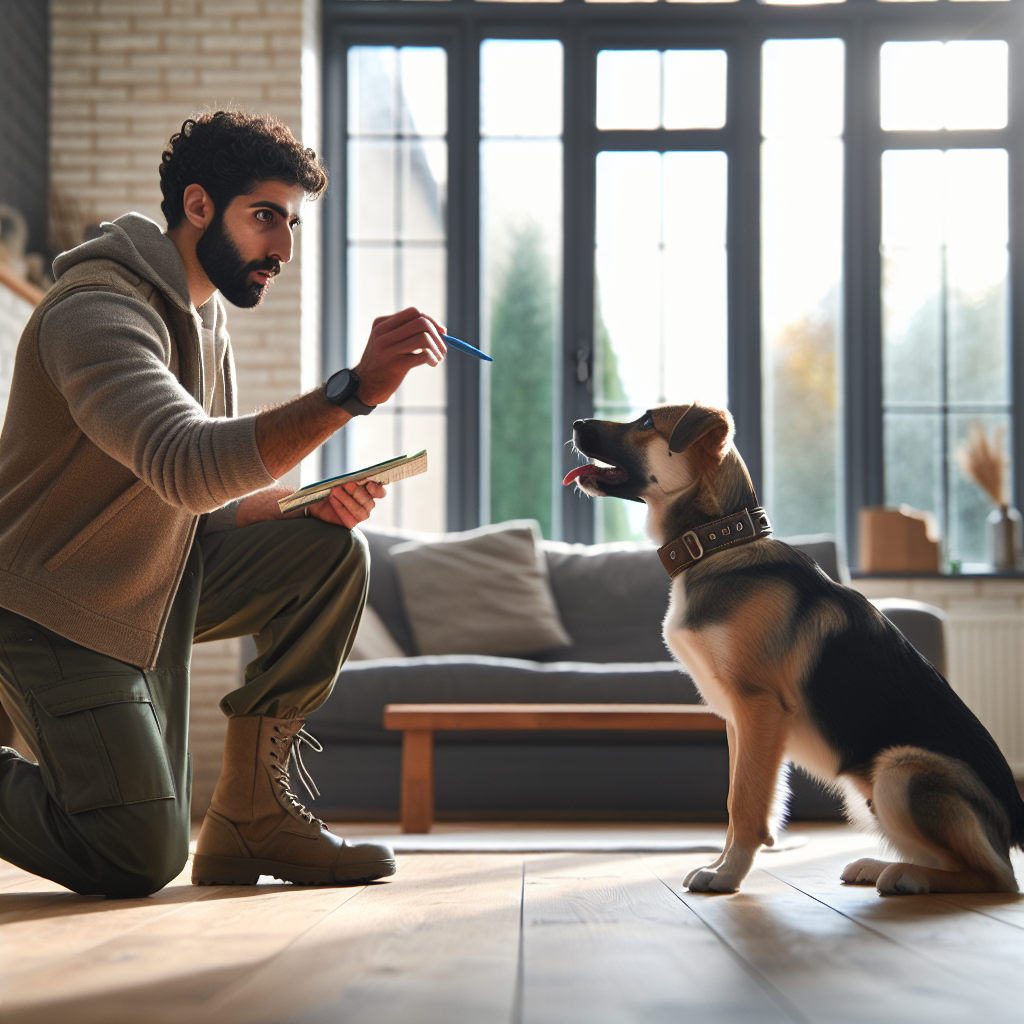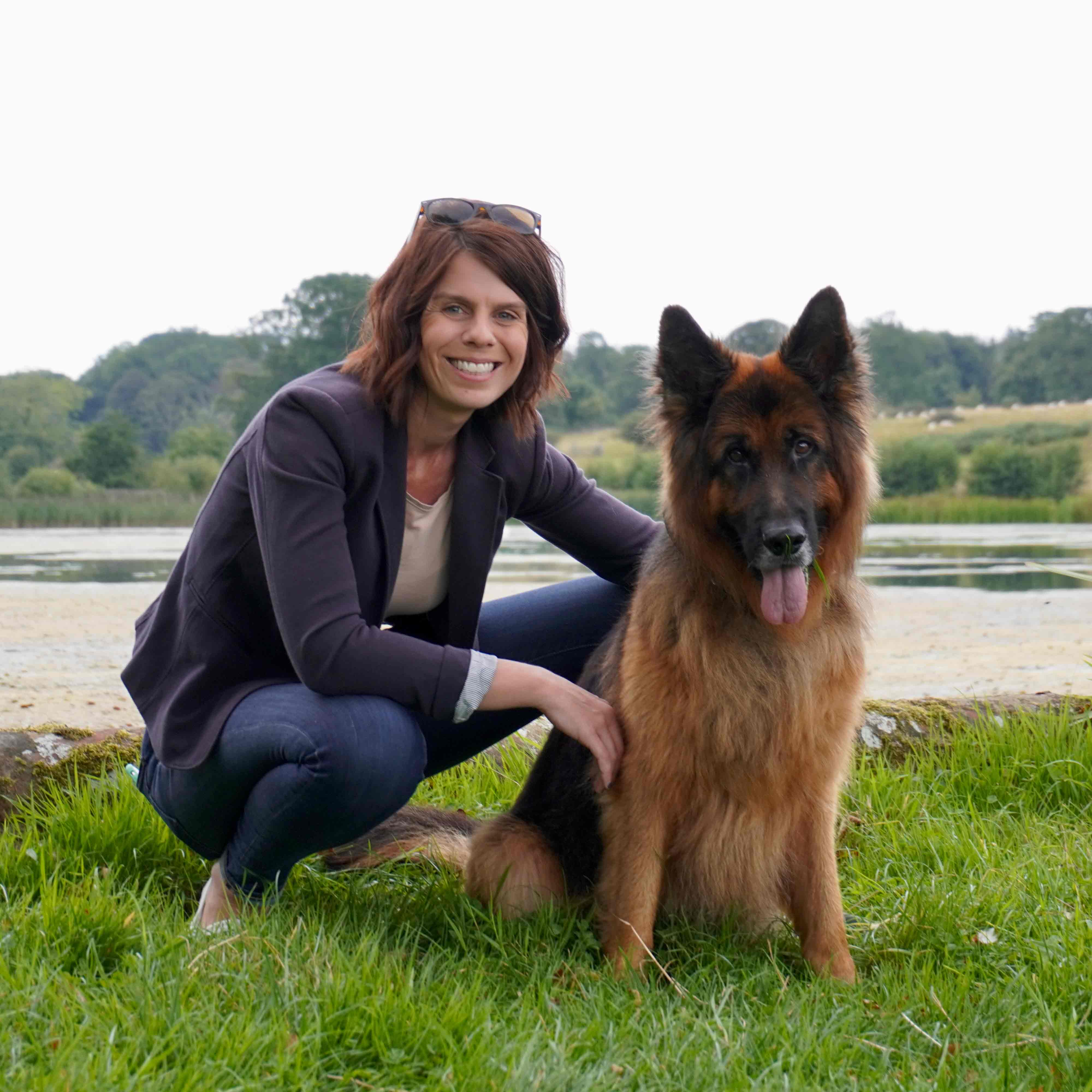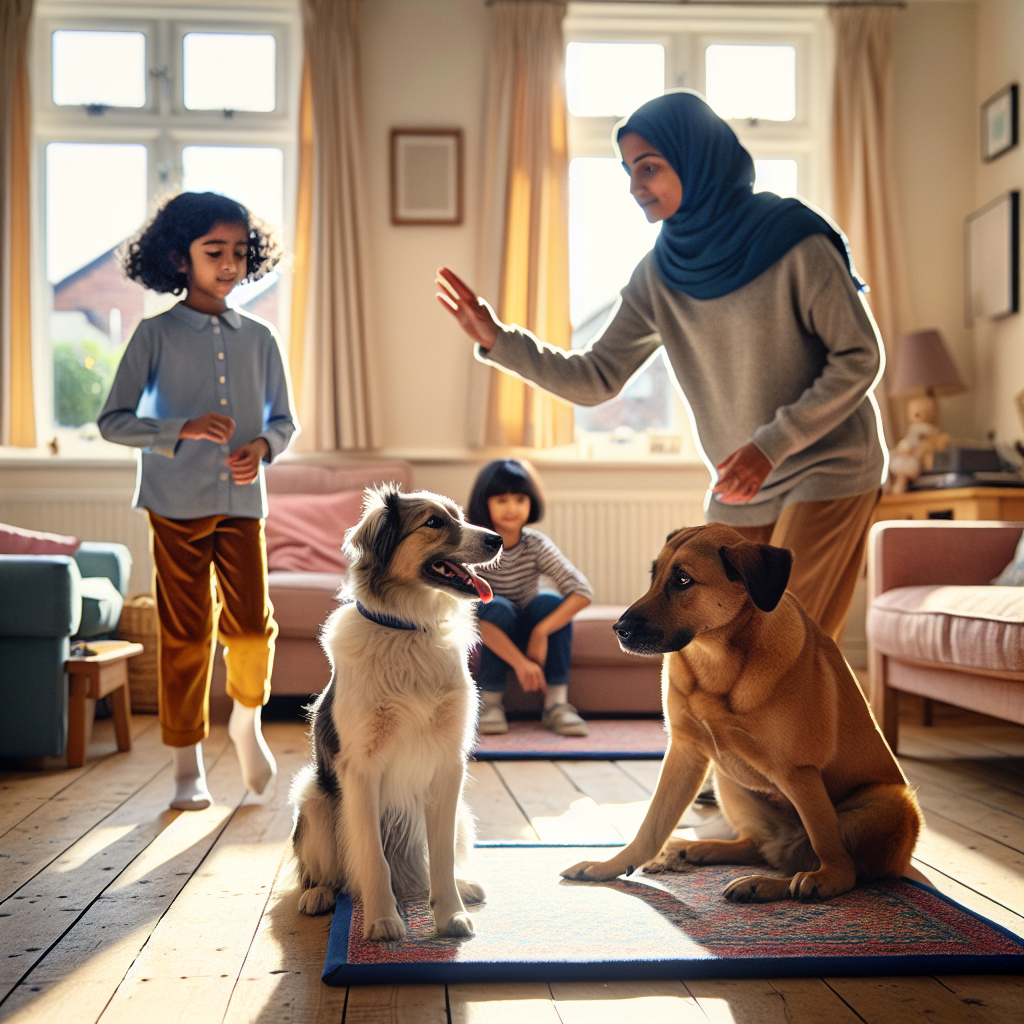Why Consistency Matters in Dog Training

Why Consistency Matters in Dog Training
If you want reliable behaviour that holds up in real life, the answer sits in one principle that never goes out of style. That is why consistency matters in dog training. At Smart Dog Training we build every plan on clear cues, clean timing, and predictable outcomes. When your dog knows exactly what each cue means and what follows their choices, progress speeds up, stress goes down, and results stick. If you want to remove guesswork and see steady progress, this is why consistency matters in dog training. Early guidance from a Smart Master Dog Trainer (SMDT) helps you set up the right routine from day one, so your dog learns in a way that fits your home and lifestyle.
Think of consistency as the glue that holds your training together. You can have great treats and fancy toys, but unless your actions, rules, and timing stay steady, your dog will struggle to connect the dots. In this article, you will learn why consistency matters in dog training, how Smart Dog Training applies it in simple steps, and how to use it across home life, walks, and public spaces.
What Consistency Really Means
Consistency is not about being strict for the sake of it. It means your cues do not change, your criteria stay clear, your rewards arrive at the right moment, and your management remains steady. When your dog offers the right behaviour, they get the same kind of reinforcement. When they choose the wrong behaviour, the outcome is predictable and calm. This is why consistency matters in dog training. It turns every moment into a clear lesson your dog can understand.
The Building Blocks of Consistency
- One cue for one behaviour
- Clear criteria for success
- Reliable reinforcement timing and placement
- Simple house rules that everyone follows
- Planned practice in different places to generalise learning
The Science That Makes Consistency Work
Dogs learn through associations and consequences. They repeat behaviour that gets them something they value and avoid behaviour that does not. When timing is clean and criteria stay stable, your dog can predict what works. Predictability grows confidence. Confidence builds fluency. This is the core reason why consistency matters in dog training and why Smart Dog Training makes timing and clarity a daily habit.
Clarity Beats Guesswork
Each time your dog hears a cue, they run a quick mental check. If last time sit meant food and praise, but today sit leads to nothing, your dog learns that sit may or may not be worth it. Inconsistent outcomes weaken behaviour. Consistent outcomes make behaviour strong and automatic.
The Smart Dog Training Approach to Consistency
At Smart Dog Training we teach you to protect signals and keep criteria pure. We set a simple plan so your dog never has to guess. This is why consistency matters in dog training, and it is exactly how we help families get calm, steady results that last. A Smart Master Dog Trainer (SMDT) will show you how to time your rewards, keep your cues tidy, and proof skills across daily life without adding stress.
The Benefits You Will See
Faster Learning
When your dog gets the same message every time, they learn faster. They stop trying random options and go straight to the choice that works. That is why consistency matters in dog training, especially in the early stages when new behaviours form.
Lower Stress and Better Focus
Predictable training lowers conflict. Your dog can relax into the work, focus on you, and enjoy the process. Calm dogs learn faster and keep skills longer.
Reliability in Real Life
Consistency turns training from a party trick into a real life tool. You want recall to work in the park and polite greeting to hold at the door with visitors. This is why consistency matters in dog training and why we proof behaviours in real environments.
Common Mistakes That Break Consistency
Mixed Signals
Using different words or hand signals for the same behaviour confuses your dog. Sit, sit down, and come on sit are three cues, not one. Pick one cue and protect it.
Changing Criteria Mid Session
Asking for a longer stay today and a short stay tomorrow without a plan erodes clarity. Set simple, incremental steps and stick to them.
Late or Random Reinforcement
Rewards that arrive late teach the wrong thing. Mark the exact moment your dog gets it right, then deliver the reward. This is a core reason why consistency matters in dog training, because the right timing builds the right association.
Inconsistent House Rules
If your dog is allowed on the sofa with one family member but not with another, your rule is not a rule. Align the whole household.
How to Build a Consistent Training Plan
Smart Dog Training uses simple frameworks that you can follow every day. We keep the plan clear, short, and sustainable, because that is what gets results.
Define Cues, Criteria, and Consequences
- Choose one cue per behaviour and agree on the exact wording
- Write the criteria your dog must meet to earn a reward
- Decide what happens when your dog makes an error, such as a calm reset
Set Session Structure
- Short sessions of two to five minutes
- Three to five reps per set
- One simple focus per session
Track Progress
Keep a quick log of what you practiced, how many correct reps you got, and what needs proofing next. A simple record helps you stay consistent over weeks, not just days.
Consistency Across the Whole Family
Your dog does not know which person asked for the sit. They only hear the cue and experience the outcome. This is why consistency matters in dog training when more than one person handles the dog. Everyone must use the same cues, the same reinforcement rules, and the same house rules.
Family Alignment Checklist
- Agree on cues for the top five behaviours
- Write the sofa rule and stick to it
- Set a routine for meals, walks, and rest
- Share one reinforcement strategy
Consistency in Public and New Places
Dogs do not automatically generalise behaviour. Sit in the kitchen is not the same as sit at the gate while a skateboard rolls past. This is why consistency matters in dog training during proofing. You must keep cues, timing, and criteria steady while slowly adding new distractions.
Proofing Steps
- Change one detail at a time such as floor surface, distance, or a small distraction
- Keep criteria clear and reward generously for success
- If your dog struggles, make it easier and try again
Reinforcement That Supports Consistency
Reinforcement is the engine of learning. Smart Dog Training teaches you to use food, play, life rewards, and praise in a structured way. Right timing and right placement make behaviour strong and precise.
Timing and Placement
- Mark the exact moment of success with a word or click
- Place the reward where you want the behaviour to end up
- Deliver fast to keep motivation high
Phasing Food the Smart Way
We plan reinforcement so your dog stays engaged without becoming dependent on visible food. We switch to variable schedules only once behaviour is strong. This is another reason why consistency matters in dog training. We do not change the rules until the dog is ready.
Handling Setbacks Without Losing Consistency
Every dog has off days. The key is how you respond. Smart Dog Training uses reset plans that keep learning safe and simple.
Reset Steps
- Step back to an easier version of the task
- Deliver a few quick wins to rebuild momentum
- Increase difficulty in small steps
Setbacks do not mean failure. They are information. Use them to fine tune your plan.
Why Puppies Need Extra Consistency
Puppies are sponges for learning. They notice patterns fast, both good and bad. Early structure is vital, which is why consistency matters in dog training during the first weeks at home. Keep cues short and friendly, reward promptly, and protect rest times to avoid overwhelm.
Puppy Consistency Basics
- Same toilet spot and schedule
- Same sleep routine and calm handling
- Short training bursts with lots of play and rest
Rescue Dogs and the Power of Predictability
Rescue dogs may arrive with mixed learning histories. Clear routines and gentle structure provide safety. This is another reason why consistency matters in dog training. Predictable days reduce anxiety and help new dogs settle faster.
First Two Weeks Plan
- Simple cue set such as name, sit, touch, and settle
- Quiet spaces and regular rest
- Slow exposure to new sights and sounds
Taking Consistency to Advanced Skills
Heelwork, distance stays, and off lead recall all rely on the same core skills. Cue clarity, clean timing, and steady criteria take your training from basic to brilliant. Smart Dog Training builds advanced plans one step at a time so your dog can succeed.
Polishing Performance
- Use a clear marker for precision
- Reward position and posture, not just the idea
- Proof with purpose in new places after each win
Tools and Aids That Support Consistency
Smart Dog Training selects humane, practical tools that make clear communication easy. A well fitted harness, a standard lead, and a treat pouch help you deliver cues and rewards cleanly. We coach you on how to use these tools so your timing and placement stay consistent.
Real Stories From Smart Dog Training
A young collie that barked at doors settled within weeks once the family aligned cues and routines. They chose one greeting rule, rehearsed calm on a mat, and rewarded the first breath of quiet. Because the plan stayed steady, calm became the new normal. A lively spaniel that pulled on the lead learned that walking near the handler earns movement, food, and praise. Random pulling no longer worked. The pattern was clear and the dog chose the easy path. These results show why consistency matters in dog training when used with clean timing and simple steps.
When to Call in Help
If you feel stuck or you want a clear plan from day one, talk with Smart Dog Training. We will assess your dog, your routine, and your goals, then show you exactly how to apply this principle every day. When progress matters, and when your time is precious, this is why consistency matters in dog training and why professional guidance pays off.
Ready to start solving your dog’s behaviour challenges? Book a Free Assessment and speak to a certified Smart Master Dog Trainer in your area.
Practical Daily Checklist
- Pick five core cues and protect them
- Plan two short sessions per day
- Reward with clean timing and place rewards with purpose
- Keep house rules the same for everyone
- Log wins and adjust one step at a time
FAQs
Why is my dog perfect at home but distracted outside
Dogs do not generalise on their own. Keep cues and timing the same outdoors, then add distractions in small steps. This is where you will truly see why consistency matters in dog training.
How long until I see results
Many dogs show change within days when timing and criteria stay steady. Full reliability takes weeks of consistent practice. Smart Dog Training will map a realistic timeline with you.
Do I always need food rewards
Food is a fast teacher. Once behaviour is strong, Smart Dog Training shows you how to shift to varied rewards and life rewards without losing performance.
What if my family uses different words
Pick one cue per behaviour and write it down. Ask everyone to use the same language. If needed, place reminder cards near the training areas.
Can consistency help with reactivity
Yes. Predictable setups, clear distance rules, and steady reinforcement build calm responses. A clear plan is vital, which is why consistency matters in dog training for sensitive dogs.
How do I fix late timing
Use a simple verbal marker to capture the exact moment of success, then deliver the reward. Practice with easy behaviours first to build your skill.
Is it possible to overtrain
Yes if sessions run too long. Keep them short and end on a win. Smart Dog Training recommends quick sets with rests between them.
When should I ask for professional help
If behaviour feels unsafe or progress stalls, reach out early. A Smart Master Dog Trainer will set a plan that puts clarity and consistency first so you can move forward with confidence. Find a Trainer Near You
Conclusion
Now you have seen why consistency matters in dog training. It provides clear signals, clean timing, and steady outcomes that your dog can trust. With Smart Dog Training, you apply this principle through simple daily routines that fit your life. Keep cues tidy, reward with purpose, and proof with small steps. If you want behaviour that works in the real world and lasts for years, make consistency the heart of your plan.
Final Steps
Your dog deserves more than guesswork. Work with a certified Smart Master Dog Trainer (SMDT) and create lasting change. Find a Trainer Near You



